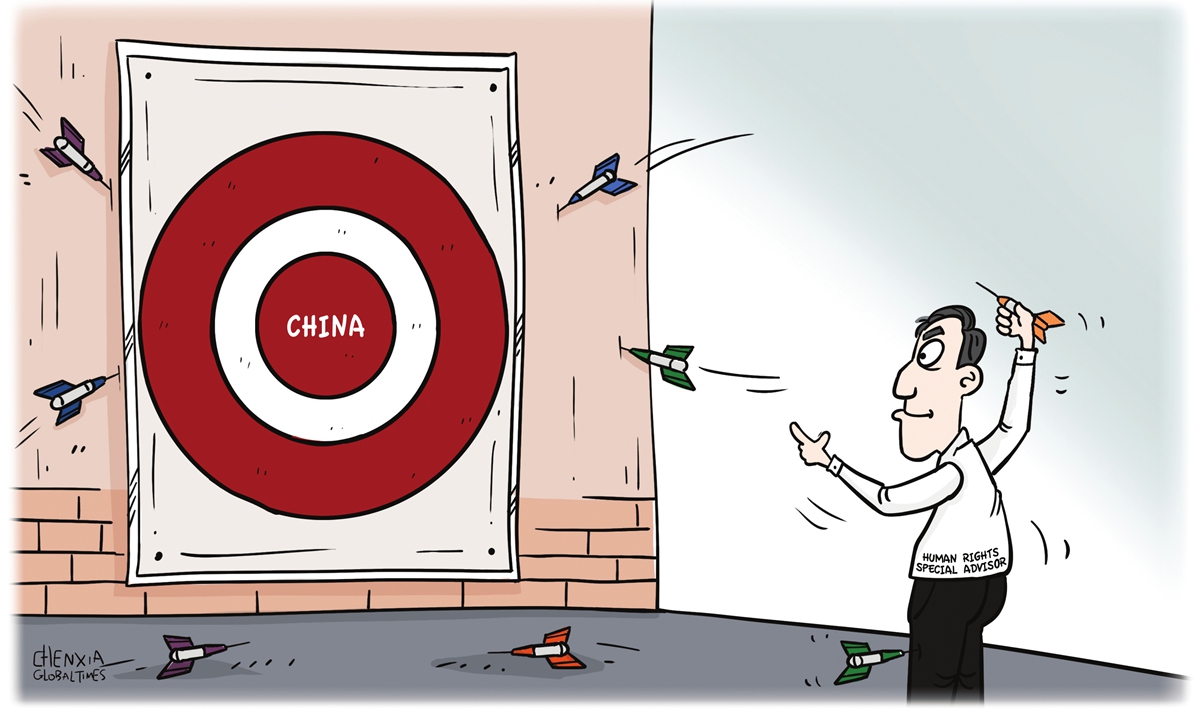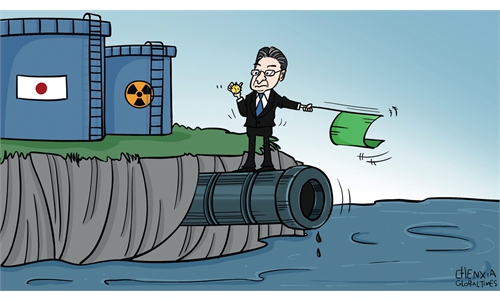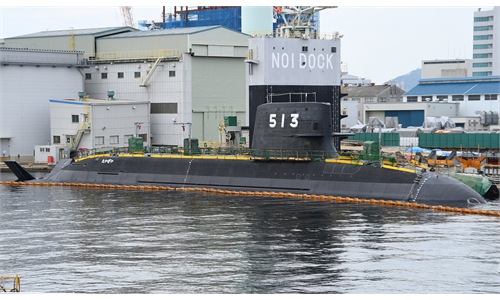
Illustration: Chen Xia/GT
NHK reported on Monday that Japanese Prime Minister Fumio Kishida decided to name former defense minister Gen Nakatani as his special adviser on human rights issues.Japan did not have this so-called special adviser on human rights issues before, and it was set up after Kishida took office. During his election campaign, Kishida made many commitments such as launching reforms and setting up a special advisor as his selling points to gain more votes. So the first aim is to fulfill the promises he has made. In addition, the appointment of Nakatani is aimed at wooing conservatives in Japan by showing a tough stance toward China at home and abroad.
For a long time, Japan has not paid much attention to human rights issues. But now it suddenly attaches considerable importance to the issue. It just wants to use this concept to seek bargaining chips in other fields. For example, if Japan feels it is economically and militarily inferior, it can use the issue of human rights to unite with other so-called democratic countries. They can then target others in a gang action on the question of human rights.
Nakatani has influence in the right wing, and dealt with China before. Therefore, it is logical to choose him as Kishida's special adviser. However, it remains to be seen what role he can play in this position in the future. After all, this position itself is a symbolic one. It may not be important or even influential as cabinet ministers.
NHK also reported that Nakatani would work closely with Minister for Foreign Affairs and the Minister of Economy, Trade and Industry to deal with international human rights issues. However, Nakatani once announced the initiative to launch a multipartisan parliamentary group to establish the Japan version of "the Magnitsky Act," a law that allows a country to punish foreign human rights "violators" by freezing their assets and enforcing its "long-arm jurisdiction" over other countries. How can such an official who advocates interfering in other countries' internal affairs under the guise of human rights contribute to the solution of international human rights issues? It is fair to be afraid that this will only make the international human rights environment more discordant.
Japan's appointment of a special adviser on human rights issues is widely regarded as being aimed at China. However, Japan has been notorious for its own misdeeds in human right issues. Setting up such a post is not only absurd, but also likely to be a slap on Japan's own face. When waging war of aggression in the 20th century, Japan carried out human experiments on poison gas research at home and abroad. It committed a variety of crimes such as massacres, rapes and arsons in many Asian countries and regions.
The 2021 Trafficking in Persons Report issued by the US Department of State in July criticized Japan's Technical Intern Training Program exploited foreign workers. Even so, the human rights issues of technical interns in Japan have failed to be tackled. Internationally, Japan has yet to properly handle issues such as "comfort women," forced labor and the discharge of contaminated water from Fukushima into the sea. The toxic poisoning of the Pacific Ocean endangers the health and safety of Japan and all human beings. The international community should supervise Japan's human rights issues and see how Japan ultimately behaves on this.
It can be predicted that even with such a special adviser on human rights issues, Japan will continue to use double standards. This will entail mainly targeting and focusing on China, and deliberately downplaying doubts on the human rights affairs in the US and Europe. Japan has hyped the groundless lies of "genocide" in Xinjiang, but remained silent during the Black Lives Matter movement that took place in various regions across the US in 2020. Japan did not criticize the US government. It did not dare to question the US' human rights stigma.
Will the special adviser on human rights issues protest against the US? Will it demand an investigation when another George Floyd says he "cannot breathe" once again in the US? Let's wait and see.
The article was compiled by Global Times reporter based on an interview with Da Zhigang, director and research fellow at the Institute of Northeast Asian Studies of the Heilongjiang Provincial Academy of Social Sciences and chief expert at the Northeast Asian Strategic Studies Institute. opinion@globaltimes.com.cn


